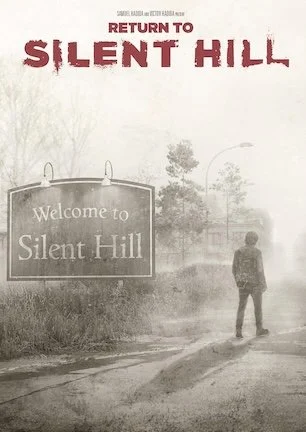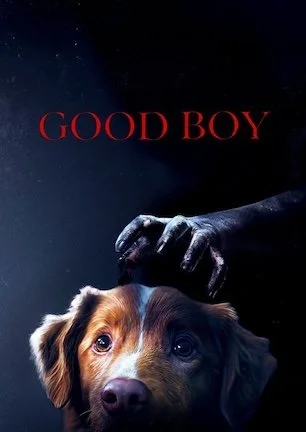Studio: Dark Star Pictures
Director: Chad Crawford Kinkle
Writer: Chad Crawford Kinkle
Producer: Ashleigh Snead
Stars: Larry Fessenden, Katie Groshong, Stephanie Kinkle, Eller Hall, Brandy Edmiston
Review Score:
Summary:
Suffering from haunting flashbacks, a reformed former cult member fears dark forces may have targeted a woman she cares for at a special needs center.
Review:
Real or fictional, cults fascinate me. Cults apparently fascinate filmmaker Chad Crawford Kinkle too.
Kinkle’s first feature, the excellent 2013 indie “Jug Face” (review here) starring Lauren Ashley Carter, told the tale of a teen attempting to escape a countryside community that designated her for a peculiar purpose. For his sophomore follow-up “Dementer,” Kinkle explores the aftermath of a somewhat similar situation through Katie, a woman readjusting to normalcy after fleeing from a small backwoods “family.”
Right out of the gate, “Dementer” begins building up a subtly upsetting texture. Unorthodox audio in the opening title sequence brings to mind a certain “Suspiria” scene of Suzie Bannion searching for secrets in Tanz. The metronome jingle of a rhythmic bell supplies the order. Weird warbles complement with chaos. Your brain becomes thrown further off balance by scattered imagery of a barking dog, blazing fire, and nude woman running into the woods. Through these strange sights and cacophony of sounds, “Dementer” sets up viewers for disorientation, putting us precisely on par with Katie.
Kinkle terrifically tells us everything essential about Katie’s backstory using brief cutaways and set dressing. A quick shot of Katie’s tapping foot and another of sweaty palms on pant legs highlights her nervousness during a job interview. A car littered with countless dreamcatchers and other feathered talismans suggests self-help superstitions healing her hazy head. No unnatural dialogue or unnecessary exposition is required to tell us where this woman comes from.
Played by Katie Groshong, who I’m inclined to believe has been mistaken for Helen Hunt more than once in her life, Katie isn’t an overly enigmatic personality. That doesn’t make for a protagonist with an especially engaging presence, although her vacancy makes sense for the story. Unanimated expressions and quiet actions can be chalked up as byproducts of understandable reticence turning her into an untrusting introvert.
Katie’s road to recovery begins at a development services center and group home for adults with special needs. Out of all of the clients cared for at her new calling, Katie feels a distinct connection to Stephanie. Modestly maternal friendliness morphs into protective concern however when Katie starts to suspect Stephanie may be a target of the devilish forces she fled from.
Chad Crawford Kinkle’s sister Stephanie, who has Down syndrome, plays the same-named character. People with developmental disabilities are an underrepresented group in cinema, particularly in horror. There’s nothing insensitive about how Stephanie’s circle is refreshingly depicted without exploitive sensationalism. “Dementer” tastefully employs Down syndrome merely to make Stephanie uniquely vulnerable, whereas a typical horror movie might have reduced her to another entranced child.
It’s not going out on a limb to guess that the women playing Katie’s boss and coworker actually have those professions in reality. The other residents of the group home and clients at the services center seem similarly plucked from the “real” roles they presumably have in actress Stephanie’s everyday life.
Through the lens of cinematographer Jeff Wedding’s handheld camera, “Dementer” gives a guerrilla impression of capturing ordinary people acting organically, because that’s exactly what they’re doing. Homegrown movies often cast amateurs out of their depths to pretend to be people they’re not. In “Dementer,” everyone simply embodies who they are when cameras aren’t rolling, so the movie reaps the benefits of natural behavior from folks who don’t have the artificial sheen of professional performers.
We see the special needs adults laughing, boasting, playing, chatting. Attendants react without dramatization. The camera coasts like a casual fly on the wall. Everything works together to tie the setting to a documentary-like atmosphere. When Katie suffers from intermittent flashbacks of fright, their uncomfortable bloodiness feels more jarring because of how steadily grounded Katie’s reality otherwise is.
As Katie’s haunting hallucinations intensify, and she continues projecting her paranoia onto Stephanie’s descent into illness, “Dementer’s” insistence on cryptic creeps begins going on too long. Anticipation rises that a meatier morsel will eventually drop along the film’s breadcrumb trail of suggestive chills, but that’s an expectation largely unfilled. While “Dementer” easily drew me in with its Spartan style, strange soundscape, and intriguingly average people, the constant chime became an annoyance and I found myself wishing end credits had come with a more tangible takeaway.
That’s enough of a knock to dock a star from the film’s rating, though not nearly enough to warrant a full “proceed with caution” warning. “Dementer’s” slightly surreal approach does narrow its appeal to a specific niche. But anyone prone to enchantment from moody microbudget thrillers should appreciate the splash of arthouse flavor in “Dementer’s” psychological suspense.
Review Score: 70






While the 110-minute runtime could use a trim to maintain more energy, “Redux Redux” is an easy recommend for anyone who enjoys low-key sci-fi.